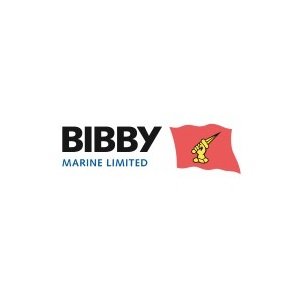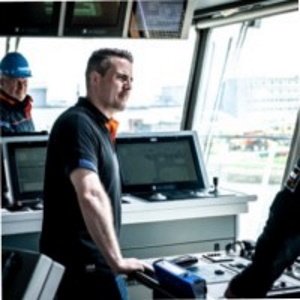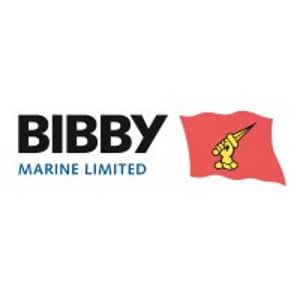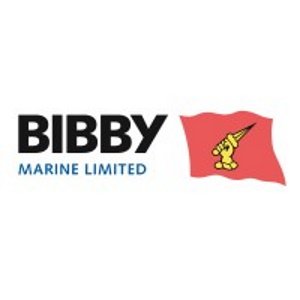Bibby Marine - Experts & Thought Leaders
Latest Bibby Marine news & announcements
Kongsberg Maritime has won a major contract to supply an integrated package of equipment for Bibby Marine’s new eCSOV, the world’s first full-electric offshore vessel. Kongsberg Maritime’s comprehensive package will be at the core of this advanced vessel’s systems. The company will provide full-electric rim-drive propulsion with azimuth and tunnel thrusters. Integrate with the battery system The new eCSOV will feature the largest-ever battery facility on an offshore ship, with a capacity of 25MWh The scope of supply also includes the automation system, full electrical control system, Dynamic Positioning, and thruster control. The new eCSOV will feature the largest-ever battery installation on an offshore vessel, with a capacity of 25MWh. Kongsberg Maritime’s equipment will seamlessly integrate with the battery system and optimise the use of energy on board. Largest maritime battery installation UK-based Bibby Marine has commissioned this pioneering service operation vessel from Spain's Armon shipyard. The hybrid vessel will be capable of operating entirely on electricity for a full day, thanks to the 25MWh Blue Whale Battery Energy Storage System from Norway’s Corvus Energy. This lithium iron phosphate system, the largest maritime battery installation to date, will enable the vessel to operate on electricity for 24 hours. Kongsberg’s fully integrated package Bibby Marine has trusted this pioneering service operation vessel from Spain's Armon shipyard Bibby Marine New Build Project Director, Gavin Forward said: “We are thrilled to embark on this pioneering journey with Kongsberg Maritime as one of our partners. This groundbreaking vessel, equipped with Kongsberg’s fully integrated package, including Rim Drive thruster units, will ensure our optimal efficiency and operational excellence." “The eCSOV marks a significant milestone not only for Bibby Marine and its partners, but also for the entire maritime industry and will certainly push the boundaries of innovation in the offshore energy sector.” Integrated package of advanced maritime technologies Birger Teien Evensen, Sales Director – Offshore, at Kongsberg Maritime, said, “We are delighted to be part of this groundbreaking project with Bibby Marine, as they take hybrid operations in the offshore market, to the next level." "Our integrated package of advanced maritime technologies will ensure the new eCSOV operates with unparalleled efficiency and sustainability, setting a new standard for the industry.” Offshore charging systems The eCSOV will have engines running solely for charging, optimising efficiency, extending battery life, and reducing emissions. A DC grid setup will minimise energy losses, and offshore charging systems will allow simultaneous battery charging and dynamic positioning. The vessel is expected to be delivered in 2027.
Corvus Energy, the supplier of zero-emission solutions for the offshore and marine industry, is proud to announce that it will deliver a mega-size battery system for the first fully electric offshore vessel ever to be built. The vessel is an electric Commissioning Service Operation Vessel (eCSOV) that will be constructed by Armon shipyard in Spain for UK-based shipowner Bibby Marine Ltd. World's first of its kind Corvus Energy will supply its Blue Whale Battery Energy Storage System (BESS) delivering close to 25MWh of power for the vessel. It will be the largest LFP (Lithium Iron Phosphate) battery system ever delivered to a maritime project. “A fully electric offshore vessel is something the industry has been working towards for a long time and marks a major milestone in offshore vessel operations," said Pål Ove Husoy, VP of Sales at Corvus Energy. Setting a new standard “This eCSOV will be the first offshore vessel that can operate fully electric for a full day and will set a new standard for future offshore vessels." "The unique system design incorporating both battery power and dual-fuel methanol engines will significantly reduce carbon emissions and increase energy efficiency while providing the reliability and performance needed for demanding offshore wind and renewable operations.” Unique optimised power distribution system Unlike conventional hybrid systems, the vessel will utilise its large battery pack as the primary power source Corvus Energy has been cooperating closely with the shipowner, designer, and integrator to dimension and optimise the system design. Unlike conventional hybrid systems, the vessel will utilise its large battery pack as the primary power source, with engines running solely for charging at a constant, optimised load that maximises efficiency, extends battery lifespan, and significantly reduces emissions. DC grid architecture The innovative DC grid architecture further enhances overall system performance by minimising energy losses and ensuring seamless power distribution. Additionally, offshore charging capabilities will enable simultaneous battery charging while maintaining DP for station-keeping, representing an industry first in the SOV market. Accelerating the path to net zero Gavin Forward, New Build Director at Bibby Marine, commented, “We are excited to collaborate with Corvus on this pioneering eCSOV project, setting a new benchmark for sustainable offshore operations and driving the future of zero-emission vessel technology." He added that Bibby Marine selected Corvus Energy "for its proven track record in delivering complex vessel projects, while the LFP battery chemistry was chosen for its alignment with our eCSOV’s operational profile, offering enhanced safety, longevity and reliability for a project that promises to accelerate the path to net-zero for the maritime sector." Equipment from Corvus Energy will be delivered to the shipyard in 2026, and the vessel is scheduled for operation in 2027 supporting the commissioning and operation of windfarms.
Global law firm Norton Rose Fulbright, working in conjunction with pioneering Spanish law firm Uría Menéndez, has advised Bibby Marine on a financing package with HSBC UK to support the development of its previously announced zero-emission electric Commissioning Service Operation Vessel for servicing offshore wind farms. The multi-million euro financing made available by HSBC UK is backed by Cesce, the Spanish Export Credit Agency. HSBC acted as sole ECA coordinator, mandated lead arranger and facility agent. Zero-emission operation The design also allows for direct offshore charging, enabling true zero-emission operation The vessel, which will now be built at Astilleros Armon in Vigo, Spain, will be equipped with a powerful 25 MWh battery system, rechargeable via dual-fuel hybrid engines powered by methanol or diesel. The design also allows for direct offshore charging, enabling true zero-emission operation. If offshore charging is unavailable, the dual-fuel methanol engines provide an alternative method to recharge the battery system, ensuring operational flexibility and zero-emission operation with green methanol. Norton Rose Fulbright team The Norton Rose Fulbright team was led by partners Andrew Williams and Philip Roche, supported by senior associate Oliver Webber. Partner Matthew Hodkin and associate Elisabeth Trotter advised on tax aspects. The Uría Menéndez team advising on Spanish law matters was led by partner Carlos López-Quiroga and counsel José Sánchez-Fayos, with the support of junior associate Andreea Croitor. Partner Guillermo Canalejo Lasarte, supported by senior associate Blanca García Velloso, advised on Spanish tax aspects. Watson Farley & Williams advised HSBC UK.







